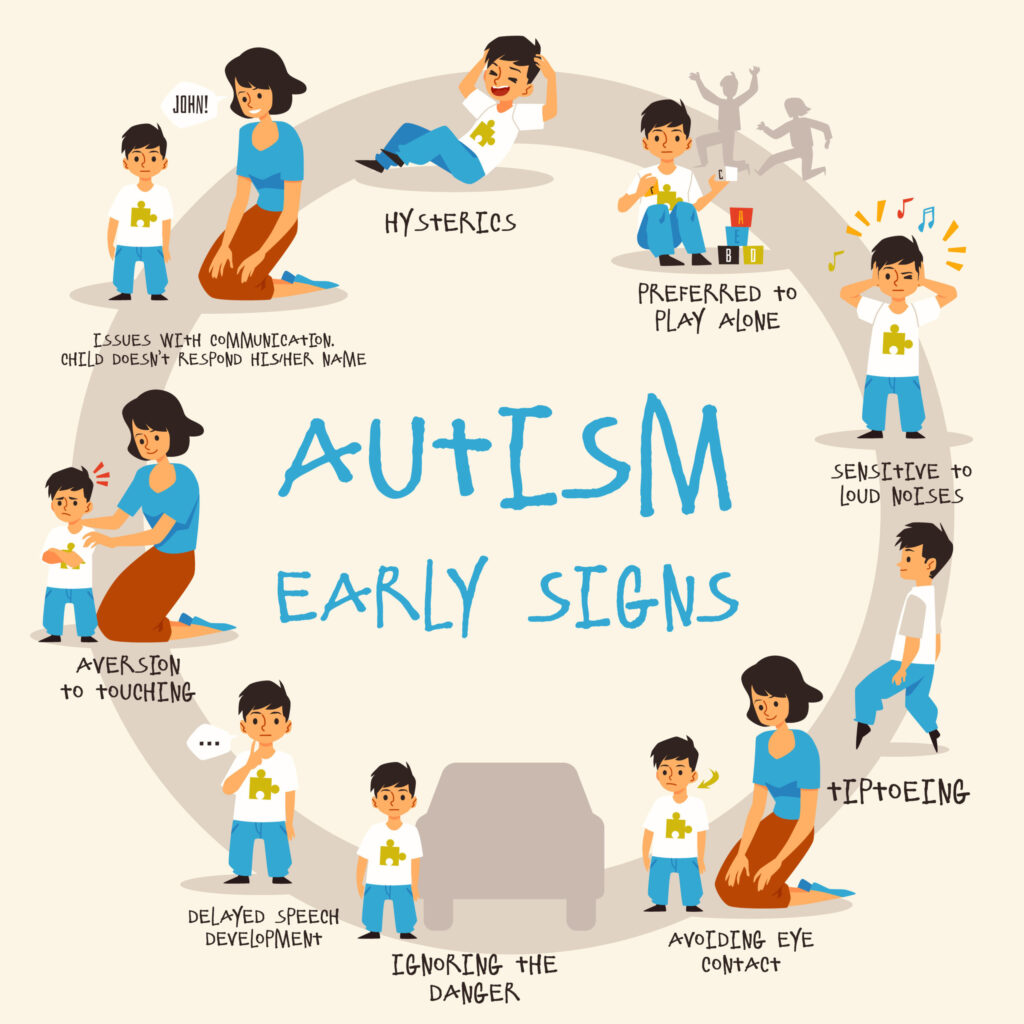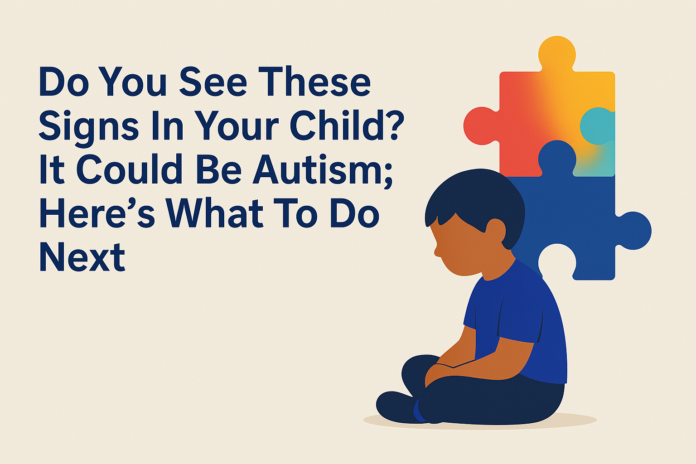Early signs. Quiet moments. Gut feelings. Sometimes, as a parent, you just know something feels different.
Autism Spectrum Disorder (ASD), commonly known as autism, is a neurodevelopmental condition that affects how children perceive the world, interact with people, and respond to their environment. It’s called a “spectrum” because the signs and challenges can vary greatly from one child to another.
According to Dr. Dedeepya Puskur, Developmental Paediatrician and Clinical Head at Fernandez Child Development Centre, autism is not an illness — it’s a different way of seeing and experiencing life. The key, she says, is early detection and support.
🔍 Early Signs of Autism: What to Watch For
Autism can often be detected within the first two years of life, although signs might be subtle. Here are some early markers to look out for:
❌ No eye contact or very limited
❌ Doesn’t respond when their name is called
❌ Stops using words they had learned earlier
🗣️ Delayed speech and language development
🤷 Lack of typical gestures (like pointing or waving)
🔁 Repetitive movements (like flapping hands or rocking)
🧩 Unusual fixation on parts of objects (like wheels or buttons)
🔊 Extreme sensitivity to sound, touch, or routine changes
🧍 Prefers to play or be alone, even as a toddler

⚠️ Remember: No two children are the same. Your child may show some signs but still be developing typically. If you notice patterns or feel something’s off, trust your instincts and consult a pediatrician.
💡 What If My Child is on the Spectrum? What Next?
A diagnosis of autism is not the end — it’s the start of understanding and support.
Dr. Puskur encourages parents to take early action by reaching out to a developmental specialist. Once diagnosed, therapy and care are personalised to fit your child’s unique needs and strengths.
Common Interventions Include:
- 🗣️ Speech Therapy – to develop language and communication
- ✋ Occupational Therapy – to support movement and sensory needs
- 💬 Behavior Therapy (ABA) – structured learning of social and communication skills
- 🎲 Play-based Activities – to build connection and engagement
- 👨👩👧 Parent Support & Training – essential for day-to-day progress
“A young brain is incredibly adaptable,” says Dr. Puskur. “The earlier you begin support, the stronger the foundation for learning, confidence, and joy.”
Autism is not about fixing a child. It’s about understanding, accepting, and giving them the right tools to thrive.
If you’re seeing signs, don’t wait. Early support can make all the difference — and your child deserves every opportunity to shine.
(PC: Cannon Disability Law)







